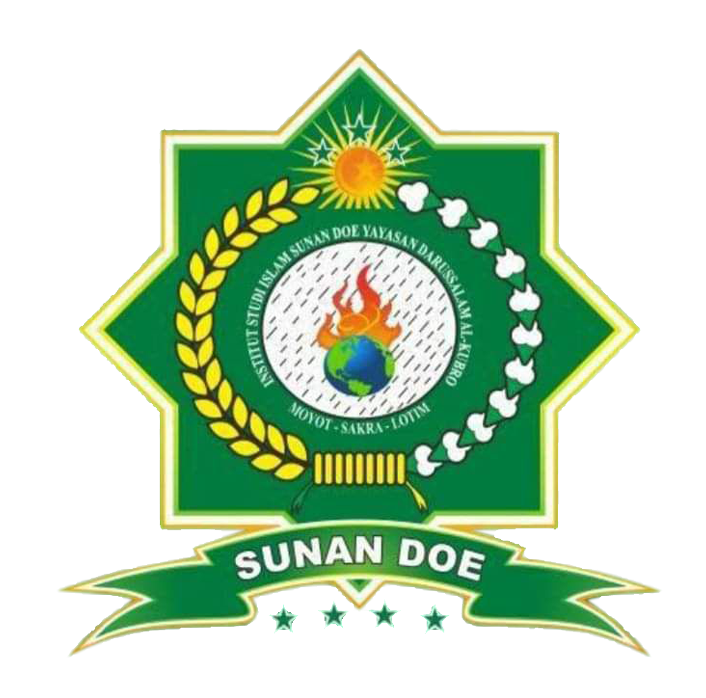Motivation to Learn from the Perspective of the Qur'an
Keywords:
Perspektif al-Qur'an, Motivasi BelajarAbstract
Students' motivation to learn is currently declining. This can be seen from their low academic grades and their behavior in learning activities which is indicated by laziness and not paying attention to the teacher when teaching. This study uses the literature review method which allows a researcher to identify a theory or method, develop a theory or method, identify gaps that occur between a theory and the relevance in the field / against a research result.In the field of education, there is no doubt that the existence of the Qur'an has influenced the education system. By studying the Koran, it can provide inspiration and motivation in all aspects of life. Obtained Quranic verses related to motivation, namely QS. al-Mujadalah: 11, QS. al-Kahf: 66-67, QS. al-'Alaq: 1-5, QS. al-Nahl: 78, QS. al-Luqman: 17-19, and al-Ra'd: 11. By understanding the Quranic messages on motivation to learn, students can explore spiritual wisdom and apply it in their journey to learn and understand the universe.
References
Agustini, K., & Ngarti, J. G. (2020). Pengembangan video pembelajaran untuk meningkatkan motivasi belajar siswa menggunakan model R&D. Jurnal Imiah Pendidikan dan Pembelajaran, 4(1), 62–78.
Andini, A. (2021). Konsep Belajar Menurut Surat al-‘Alaq Ayat 1-5 dan Surat an-Nahl Ayat 78 dalam Kitab Tafsir al-Jalaalayn dan Relevansinya dengan Tujuan Pendidikan Islam [PhD Thesis, IAIN Ponorogo]. http://etheses.iainponorogo.ac.id/14960/
Arief, S. F., & Sugiarti, Y. (2022). Literature Review: Analisis Metode Perancangan Sistem Informasi Akademik Berbasis Web. Jurnal Ilmiah Ilmu Komputer Fakultas Ilmu Komputer Universitas Al Asyariah Mandar, 8(2), 87–93.
Arifin, M., & Abduh, M. (2021). Peningkatan motivasi belajar model pembelajaran blended learning. Jurnal Basicedu, 5(4), 2339–2347.
Emda, A. (2018). Kedudukan motivasi belajar siswa dalam pembelajaran. Lantanida journal, 5(2), 172–182.
Furoidah, A. (2019). Tokoh Pendidikan Islam Perempuan Rahmah El-Yunusiah. FALASIFA: Jurnal Studi Keislaman, 10(2), 20–28.
Gumati, R. W. (2020). Pengaruh Pembiasaan Tilawah Al-Qur’an Terhadap Pembentukan Karakter Siswa. Karangan: Jurnal Bidang Kependidikan, Pembelajaran, dan Pengembangan, 2(02), 38–57.
Harahap, R. M., Ilyas, A. F., & Haryono, I. (2020). Biografi dan Bibliografi Ahmad Khatib Al-Mingkabawi: Inspirasi Tentang Ilmuwan Era Revolusi Industri 4.0. Jurnal Penelitian Medan Agama, 11(2). http://jurnal.uinsu.ac.id/index.php/medag/article/view/8652
Harefa, M., Lase, N. K., & Zega, N. A. (2022). Deskripsi minat dan motivasi belajar siswa pada pembelajaran biologi. Educativo: Jurnal Pendidikan, 1(2), 381–389.
Hodijah, A. S., & Ardiansyah, A. (2023). Etika Belajar dan Mengajar pada Tafsir Fathul Qadir Karya Imam Ash Shaukani (Kajian Surah Al Kahfi Ayat 66-78). Hamalatul Qur’an: Jurnal Ilmu Ilmu Alqur’an, 4(1), 31–40.
Kementerian Agama, R. I. (2019). Al-Qur’an dan Terjemahannya Edisi Penyempurnaan 2019. Jakarta: Lajnah Pentashihan Mushaf Al-Qur’an Balitbang Diklat Kemenag RI.
Kurnianto, B., & Rahmawati, R. D. (2020). Hubungan pola asuh Orang Tua terhadap motivasi belajar siswa pada pembelajaran Daring Masa Pandemi. Seminar Pendidikan Nasional (SENDIKA), 2(1). http://conference.upgris.ac.id/index.php/sendika/article/view/1058
Kurniawan, A. (2022). Motivasi Dalam al-Qur’an (Analisis Term Ayat Ḥarraḍa dan Ḥaḍḍa dengan Pendekatan Psikologi Islam). Diambil 20 Desember 2023, dari https://eprints.walisongo.ac.id/id/eprint/19491/
Lidia Susanti, S. P. (2020). Strategi pembelajaran berbasis motivasi. Elex Media Komputindo.
Manik, N. S. Z., Damanik, M. Y. P., Suryani, I., Ramadhani, N., & Az-Zahra, T. C. S. (2023). Ayat-Ayat Yang Berkaitan Dengan Pendidikan Islam Dalam Surah Al–Luqman Ayat 17-19 Kajian Tafsir Al-Misbah. Innovative: Journal of Social Science Research, 3(1), 207–218.
Meilani, D., & Aiman, U. (2020). Implementasi pembelajaran abad 21 terhadap hasil belajar IPA peserta didik dengan pengendalian motivasi belajar. Indonesian Journal of Primary Education, 4(1), 19–24.
Muazaroh, S., & Subaidi, S. (2019). Kebutuhan Manusia dalam Pemikiran Abraham Maslow (Tinjauan Maqasid Syariah). Al-Mazaahib: Jurnal Perbandingan Hukum, 7(1), 17–33.
Nadila, A., Supriyono, & Ratnaningsih, A. (2023). Meningkatkan Motivasi dan Hasil Belajar Siswa Sekolah Dasar Melalui Media Koper Jurang. Edukasiana: Jurnal Inovasi Pendidikan, 2(2), 85–92. https://doi.org/10.56916/ejip.v2i2.360
Parnawi, A., & Ramadhan, B. W. (2023). Upaya Guru Al-Qur’an Hadits dalam Meningkatkan Motivasi Belajar Siswa Kelas V SD Al-Azhar 1 Kota Batam. JIIP-Jurnal Ilmiah Ilmu Pendidikan, 6(3), 1376–1380.
PS, A. M. B. K. (2019). Motivasi belajar dalam perspektif QS. al-Ra’d: 11 menurut kitab tafsir al-Jalalain karya Imam Jalaluddin al-mahalli dan Imam Jalaluddin al-Suyuti. Suhuf, 31(2), 134–160.
Rahman, S. (2022). Pentingnya motivasi belajar dalam meningkatkan hasil belajar. Prosiding Seminar Nasional Pendidikan Dasar. https://ejurnal.pps.ung.ac.id/index.php/PSNPD/article/view/1076
Rusdiansyah, M. (2019). Motivasi belajar yang terkandung dalam al-qur’an surah al-mujadalah ayat 11 [B.S. thesis, Fakultas Ilmu Tarbiyah dan Keguruan UIN Syarif Hidayatullah Jakarta]. https://repository.uinjkt.ac.id/dspace/handle/123456789/45374
Sarnoto, A. Z., & Abnisa, A. P. (2022). Motivasi Belajar dalam Perspektif Al-Qur’an. Scaffolding: Jurnal Pendidikan Islam dan Multikulturalisme, 4(2), 210–219.
Sudirman, M., & Amin, A. (2022). Motivasi Belajar Menurut Al Qur’an: Analisis Surat Ar-Rad Ayat 11. Annizom, 7(3), 186–196.
Suwarma, D. M., Munir, M., Wijayanti, D. A., Marpaung, M. P., Weraman, P., & Hita, I. P. A. D. (2023). Pendampingan Belajar Siswa Untuk Meningkatkan Kemampuan Calistung Dan Motivasi Belajar. Community Development Journal: Jurnal Pengabdian Masyarakat, 4(2), 1234–1239.
Tampubolon, R. A., Sumarni, W., & Utomo, U. (2021). Pengaruh Pembelajaran Daring dan Motivasi Belajar terhadap Hasil Belajar Siswa di Sekolah Dasar. Jurnal Basicedu, 5(5), 3125–3133.
Downloads
Published
Issue
Section
License
Copyright (c) 2023 Salman Yafi, Rahman, Ikhsan, Afnibar, Ulfatmi (Author)

This work is licensed under a Creative Commons Attribution-ShareAlike 4.0 International License.
Cigarskruie: Journal of Educational and Islamic Research by Saniya Institute is licensed under Creative Commons Attribution ShareAlike 4.0
It means that:
- Adapted Material means material subject to Copyright and Similar Rights that is derived from or based upon the Licensed Material and in which the Licensed Material is translated, altered, arranged, transformed, or otherwise modified in a manner requiring permission under the Copyright and Similar Rights held by the Licensor. For purposes of this Public License, where the Licensed Material is a musical work, performance, or sound recording, Adapted Material is always produced where the Licensed Material is synched in timed relation with a moving image.
- Adapter's License means the license You apply to Your Copyright and Similar Rights in Your contributions to Adapted Material in accordance with the terms and conditions of this Public License.
- BY-SA Compatible License means a license listed at creativecommons.org/compatiblelicenses , approved by Creative Commons as essentially the equivalent of this Public License.
- Copyright and Similar Rights means copyright and/or similar rights closely related to copyright including, without limitation, performance, broadcast, sound recording, and Sui Generis Database Rights, without regard to how the rights are labeled or categorized. For purposes of this Public License, the rights specified in Section 2(b)(1)-(2) are not Copyright and Similar Rights.
- Effective Technological Measures means those measures that, in the absence of proper authority, may not be circumvented under laws fulfilling obligations under Article 11 of the WIPO Copyright Treaty adopted on December 20, 1996, and/or similar international agreements.
- Exceptions and Limitations means fair use, fair dealing, and/or any other exception or limitation to Copyright and Similar Rights that applies to Your use of the Licensed Material.
- License Elements means the license attributes listed in the name of a Creative Commons Public License. The License Elements of this Public License are Attribution and ShareAlike.
- Licensed Material means the artistic or literary work, database, or other material to which the Licensor applied this Public License.
- Licensed Rights means the rights granted to You subject to the terms and conditions of this Public License, which are limited to all Copyright and Similar Rights that apply to Your use of the Licensed Material and that the Licensor has authority to license.
- Licensor means the individual(s) or entity(ies) granting rights under this Public License.
- Sui Generis Database Rights means rights other than copyright resulting from Directive 96/9/EC of the European Parliament and of the Council of 11 March 1996 on the legal protection of databases, as amended and/or succeeded, as well as other essentially equivalent rights anywhere in the world.
- You means the individual or entity exercising the Licensed Rights under this Public License. Your has a corresponding meaning.















